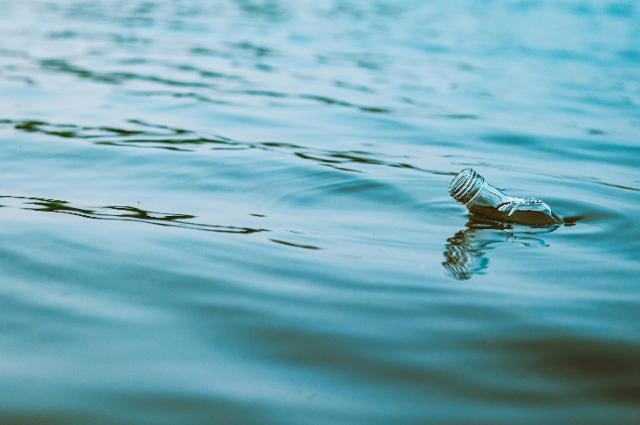
You know how you take antibiotics when you're sick and thank modern medicine for existing? Yeah, well, bacteria, thank you too, because thanks to our global habit of overprescribing and over-flushing, our rivers are now basically a spa retreat for superbugs.
If that sentence sounded like a fever dream, allow me to walk you through the very real, very disturbing reality: human antibiotics are polluting rivers, messing up ecosystems, and fueling drug resistance. A global study confirmed it. Nature’s not healing, baby. She’s fighting for her life.
The Study That Spilled the Antibiotic Tea
So, this wasn’t just a few scientists poking around one dirty stream in some back alley of the world. This was a massive, multi-continent study involving researchers from the University of York, who analyzed rivers in over 70 countries. They took water samples from over 700 sites, testing them for the presence of 14 commonly used antibiotics.
Spoiler alert: Antibiotics were found in 65% of the rivers tested. In some cases, the levels were hundreds of times higher than what's considered safe.
The worst part? These rivers weren’t tucked away in obscure corners of the world. Contaminated rivers were found everywhere, from the Thames in London to the Mississippi in the US to rivers in India, Bangladesh, and Kenya. No one’s tap water is safe, darling.
How Did We End Up Medicating Fish and Frogs?
Let’s break it down real smooth:
We take antibiotics, sometimes for legit reasons, sometimes because we think WebMD knows better than our doctor.
Our bodies metabolize part of it.
The rest? It goes through the human body's process of excretion.
Sewage treatment plants try their best, but they’re not trained in advanced pharmaceutical removal.
Leftover antibiotics flow into rivers.
Bacteria floating around in these rivers think, “Ooh, what’s this?” and start evolving.
And just like that, we’re turning peaceful rivers into hot tubs of drug-resistant bacteria.
The Rise of the Superbugs
Here’s the juicy horror part: bacteria in rivers exposed to low doses of antibiotics don’t die. Instead, they adapt. Mutate. Evolve. And once that resistance builds, they pass it on to other bacteria like it’s the latest gossip.
This creates what we call antimicrobial resistance (AMR), and no, it’s not just a science fiction plotline. AMR is already killing people. According to WHO, over 1.27 million people died directly from AMR in 2019, and that number is expected to rise to 10 million annually by 2050.
In short: the more antibiotics we leak into the environment, the more we hand bacteria the tools to defeat modern medicine. And when infections don’t respond to meds anymore? We’re right back in the Dark Ages, homeboi.
Who’s to Blame? (Besides Literally All of Us)
Let’s spread the blame generously like a bad moisturizer:
- Overprescription: Doctors sometimes prescribe antibiotics for viral infections (which don’t respond to antibiotics at all). And patients pressure them to “just give something” so they don’t miss work.
- Self-medication: People love playing doctor. Got a leftover antibiotic from 2022? Perfect! Let’s use that for an entirely unrelated infection.
- Pharmaceutical industries: Oh, you thought they were clean? Think again. In some countries, drug factories discharge untreated waste right into rivers. One factory in India was found to be dumping antibiotic concentrations higher than the bloodstream of a medicated patient. Cute, right?
- Weak regulation: Many countries lack laws or enforcement around pharmaceutical waste and environmental protection. The result? Rivers become liquid landfills.
The Impact on Ecosystems
It’s not just us humans getting the short end of the pill bottle.
Fish and amphibians are exposed to antibiotics daily. It messes with their gut bacteria, reproductive systems, and overall survival.
Insects and algae in the food chain also get affected, which then impacts predators like birds and mammals. It’s a ripple effect. And not the good kind.
Eventually, our food and water supplies get caught in the crossfire. Because if you're eating fish from a river that’s marinated in antibiotics, congrats, you’re microdosing meds you never needed.
So, What’s the Fix?
Is this fixable? Yes. Is it going to be easy? Not even remotely. But here’s what the world needs to do, starting, like, yesterday:
1. Upgrade Wastewater Treatment Plants
Our current plants are designed to handle poop and toilet paper, not sophisticated pharmaceutical compounds. We need advanced filtering systems that can catch these drugs before they hit open water.
2. Stronger Laws and Regulations
Governments need to enforce proper waste disposal, especially for pharmaceutical companies. This means not just laws on paper, but actual inspections, fines, and shutdowns if needed.
3. Stop the Antibiotic Buffet
Doctors, nurses, and patients need to chill. Not every cough deserves a capsule. Prescriptions should be based on actual need, not fear of inconvenience.
4. Public Education (aka You, Reader)
The average person doesn’t know that antibiotics end up in rivers. The more people become aware, the more pressure there is on industries and policymakers. So please, rant, post, protest, scream. Whatever works.
5. Global Collaboration
AMR doesn’t respect borders. If superbugs evolve in one country, they can, and do, travel globally. This needs to be treated like the public health emergency it is.
Final Thought: Nature’s Not Your Trash Can
Imagine a future where a paper cut could kill you. That’s not a joke, it’s a very real possibility if antibiotics stop working. We’ve been treating nature like it’s a bottomless trash can, assuming it’ll clean up after us no matter what. But the truth is, it’s catching up. Our overuse of antibiotics isn’t just a medical issue, it’s an environmental one.
Human antibiotics are ending up in rivers across the globe, thanks to overprescription, poor waste treatment, and pharmaceutical pollution. This is breeding antibiotic-resistant bacteria that are already killing millions, and threatening to take down modern medicine as we know it. The solution? Better treatment systems, smarter prescriptions, and serious global action.
Until then, our rivers will keep marinating in meds, because apparently, even bacteria need a glow-up.
